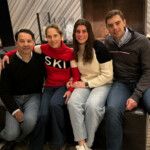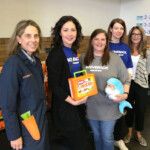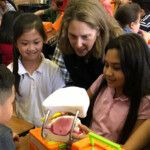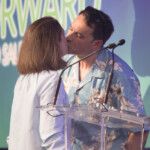THE FACE OF dentistry has changed considerably since we inaugurated the Lucy Hobbs Awards in 2013, celebrating women’s contributions in the name of the first American woman to earn a dental degree when she did so in 1866.
We like to think these honors have played at least some role in boosting female participation throughout the profession, but of course it’s women themselves who have been the biggest drivers of change—women like the ones you’ll meet on the pages ahead. The future of dentistry is trending female, and the high achievers, philanthropists and mentors you meet here—and others like them in every nook and cranny of the country—are a big reason why.
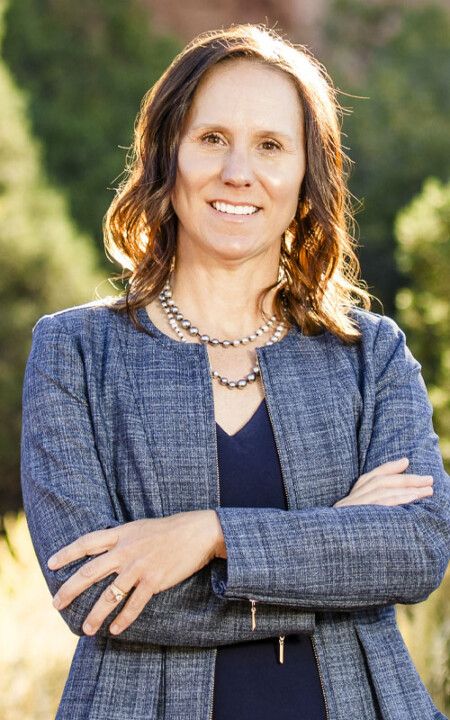
Innovator
KIM BATTERSON
CITY: Colorado Springs, Colorado
EDUCATION: DDS, University of Iowa Dental School; orthodontics residency and MS, University of Iowa
NAMES OF PRACTICES: Kim Batterson Orthodontics SPECIALTY: Orthodontics and dentofacial orthopedics
IMAGINE A PATIENT with a severe underbite—destined for orthognathic surgery, surely. Well, not necessarily, thanks to an innovative alternative treatment developed by Dr. Kim Batterson.
The boardcertified orthodontist has been exploring growth modification treatment options for Class III malocclusions, a less common but more complex variety. Her research on two corrective approaches—RPE/RPHG vs. MARPE/RPHG/De Clerck, for those who speak ortho—is promising. “I found that a boneborne expander with a reverse pull headgear and De Clerck plates can statistically improve the patient’s ANB,” Dr. Batterson says. This means more patients, especially those with severe skeletal discrepancies, may find themselves with alter natives to surgery. “We can try to redirect that growth and avoid jaw surgery.”
Having studied these treatment options for several years in her solo practice, Dr. Batterson recently presented her findings to the prestigious Angle Society. Next, she hopes to have her research published and plans to validate the effectiveness of her methods with additional patient studies.
Her practices in Colorado Springs and nearby Cañon City, which she has run for 21 years, reflect her forwardthinking approach. The clinics are equipped with advanced technology to help provide precision care: a CBCT unit, an intraoral scanner—an especially beneficial tool for younger patients with a sensitive gag reflex—and, in her main Colorado Springs outpost, a 3D printer.
Her guiding philos ophy: “I believe in doing things right the first time,” she says. “Ideal occlusion is my number one goal. Yes, we’ll finish with a beautiful smile, but I want all teeth to hit perfectly.” Being boardcertified adds an other layer of accountability to her work. “You submit finished cases and are then evaluated by your peers. It’s very humbling.”
Outside the office, life is just as dynamic for the mother of two and “ultra runner” who recently celebrated her fiftieth birthday by completing the grueling 50mile Pikes Peak Ultra race. “Every day, I’m creating beautiful smiles and making a positive impact,” she says—at the chair and on the trail alike.

Industry Icon
DENISE TERESE-KOCH
AGE: 54
CITY: Knoxville, Tennessee
EDUCATION: DDS, Loyola University School of Dentistry; MBA, Belhaven University; Ed.D in educational leadership, Liberty University
AFFILIATION: Lincoln Memorial University College of Dental Medicine
SPECIALTY: General dentistry
THE MOMENT everything clicked for Dr. Denise Terese in dental school has remained in her memory ever since. She was sitting in Dr. Norm Woods’s oral histology class as a D1 at Loyola University in Chicago. “I thought, ‘This is what education should be. I want to be one of these people who makes a difference.’ ”
Today, with successful careers as both dentist and educator, that’s just what she’s doing. For 23 years, she built and ran a multimilliondollar private practice in Chicago alongside her husband, Loren. After they sold it in 2014, she transitioned to what she calls her “second career in dental education,” hired to develop and implement courses including Advanced Education in General Dentistry for Tomah VA Medical Center in Wisconsin and three den tal programs for South College in Nashville.
In August 2020, she was named the founding dean and chief academic officer of Lincoln Memorial University–College of Dental Medicine in Knoxville, launching the school’s DMD and hygiene programs when LMUCDM opened its doors to its inaugural class in 2022.
Dr. Terese saw the flaws of a “one size fits all” pedagogical model. “Students today don’t respond to that,” she says. “We have to differentiate the process and put them in an environment where they’ll thrive.”
Her notions aligned with LMU’s vision for a studentcentered curriculum. The school emphasizes problembased learning and handson experience, immersing students in preventive dentistry as early as their first semester. Commu nity service is also central, supporting LMUCDM’s mission to bring oral health care to the 2 million people who live in eastern Tennessee and Appalachia more broadly—a region plagued by severe caries incidence and limited access to care. Its outreach program has seen some 21,500 patients since September 2022.
For Dr. Terese, who still practices in affiliation with the university and community outreach program, it’s about shaping the next generation of dentists to be good doctors—and, just as important, good humans. “Autograph your work with excellence and be proud of the work you’ve put into the community,” she says. “These are some of the things I’m trying to teach.”
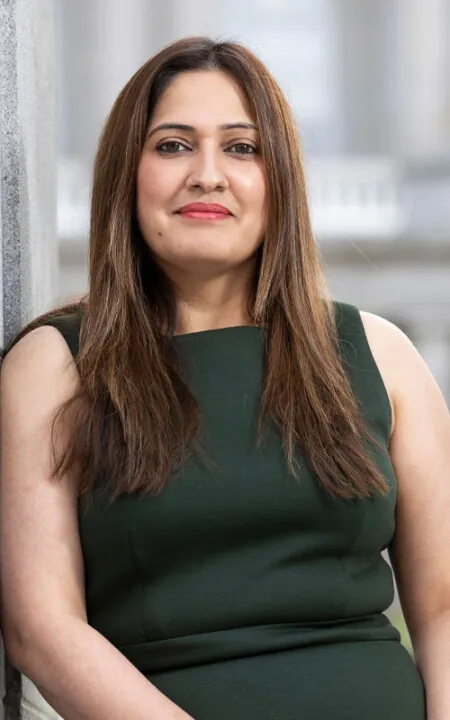
Clinical Expert
PAYAL VERMA
AGE: 39
CITY: Concord, New Hampshire
EDUCATION: BDS, Manipal College of Dental Medicine, Manipal University, Manipal, India; MPH, Johns Hopkins Bloomberg School of Public Health; DMD, University of Pennsylvania School of Dental Medicine; dental and craniofacial research fellowship, National Institute of Dental and Craniofacial Research, National Institutes of Health; oral and maxillofacial surgery residency, University of Cincinnati
NAME OF PRACTICE: Capitol Center for Oral & Maxillofacial Surgery
SPECIALTY: Oral and maxillofacial surgery
HAVING EMIGRATED from India, Dr. Pay al Verma has traversed the proverbial long and winding road to get where she is today, powered by a relentless drive to succeed that has brought
her great professional success at an early age.
Shadowing her dentist aunts and uncles in India when she was younger, Dr. Verma was naturally drawn to the profession. Not until she volunteered with Oper ation Smile, a nonprofit that treats patients with cleft and craniofacial disorders, did she decide to come to the United States in 2009 to con tinue her training in oral and maxillofacial surgery.
She has been some thing of a pioneer: Nation wide, women are just 8 percent of oral and maxillo facial surgeons—female im migrants much less so. She knew challenges lay ahead. “I had to work extra hard to stand out,” she says.
Dr. Verma endured a few detours along the way. Some personal circumstan ces forced her to take a hia tus from her residency just one year in, creating further struggles. “It becomes dif ficult to rematch because people question your inten tions,” she says.
Despite the setback, she was undeterred. In 2015, she began a research fellowship at the National Institute of Dental and Cra
niofacial Research. There, she worked with patients with rare craniofacial disor ders and syndromes and got deeply involved in cranio facial research. She reap plied for residency, facing a litany of intrusive inter views, and in 2017 matched at the University of Cincin nati, where she completed her training.
Today, the boardcer tified surgeon channels her competitive spirit into pa tient care at her practice in New Hampshire, incorporat ing technology such as vir tual surgical planning and 3Dguided bone grafts. Her pursuit of academic excel lence remains as ardent as ever, too: She has authored 16 research articles to date, contributed a book chapter about outpatient anesthesia practices and remains in volved with the NIDCR.
Through it all, she has persevered. She offers ad vice to others in similar situ ations: “There will be peo ple who like to stop you. I heard that 1,000 times, even from surgeons,” she says. “If you have passion, just go for it and stay focused.”
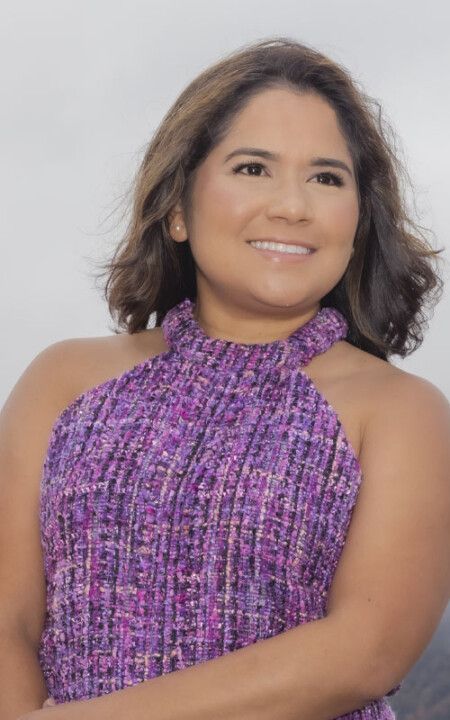
Mentor
ROSE AMABLE
AGE: 41
CITY: Ardsley, New York
EDUCATION: DDS, New York University College of Dentistry; general practice residency, Bronx Lebanon Hospital; pediatric dentistry residency, New York University College of Dentistry
NAME OF PRACTICE: Ardsley Family Dental
SPECIALTY: Pediatric dentistry
THE NEED TO further diversify dentistry is clear: According to the American Dental Education Association, there was just a 2 percent increase in the number of dental school applicants from diverse backgrounds between 2012 and 2021. It’s a vexing problem Dr. Rose Amable knows all too well.
“I vividly remember the challenges of navigating the educational landscape without support,” the boardcertified pediatric dentist says. “That fueled my determination to create change.”
Dr. Amable left her native Peru for the U.S. at age 19. After earning a dual degree in biology and chemistry from Fordham, she was conducting stem cell research at the National Institute on Drug Abuse in Baltimore while seeking dental experience. She reached out to a number of dentists, but just one responded: Dr. Eduardo DeJesus Rodriguez. His mentorship shaped her professional journey and instilled in her a profound philosophy: “The best way to repay kindness is to pay it forward, mentor and inspire others.”
To that end, Dr. Ama ble founded the Bringing Smiles Enrichment Dental Program (BSEDP) at New York Uni versity’s College of Dentistry, her alma mater, in 2018. The program provides underrepresented students with clinical dental experience, mentoring, research opportunities and professional development. So far, 50 interns have graduated from the program; 25 are enrolled in dental schools around the country and the rest are applying.
In addition to running a private practice in Westchester County, New York, with her husband, Dr. David Aranbayev (a general and cosmetic dentist), and mentoring her BSEDP interns, Dr. Amable wears many hats. She’s a clinical professor in NYU’s Department of Pediatric Dentistry; is the faculty provider for five elementary school dental programs in New York City; and is a regional clinical director for the Special Smiles Program, the dental arm of the Special Olympics’ Healthy Athletes initiative.
She’s also a mother of four, ages 9, 7, 5 and 4 months. Her key to balance: “Embracing imperfections and knowing that it’s OK to lose momentum,” she says. “The willingness to keep pedaling, even after a fall, propels me toward growth.”
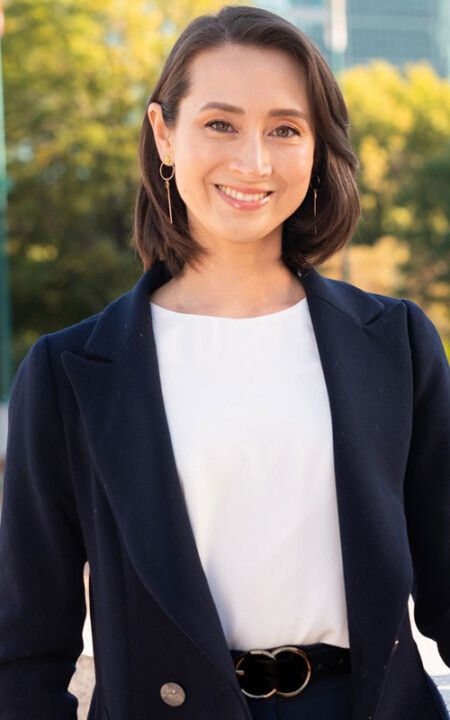
Woman to Watch
JULLIA KINSER
AGE: 34
CITY: Lilburn, Georgia
EDUCATION: DMD, Lake Erie College of Osteopathic Medicine School of Dental Medicine
NAME OF PRACTICE: Smile Pleasant Hill Dentistry SPECIALTY: General dentistry
THE NAME OF Dr. Jullia Kinser’s practice, Smile Pleasant Hill Dentistry, which she opened in January 2023, couldn’t be more fitting. The Atlantaarea dentist, you see, has much to celebrate.
Two years into her dental career, practicing in Jacksonville, Florida, Dr. Kinser was diagnosed with Stage III breast cancer. She was 29. With no family history of the disease, the news came as a shock. She endured aggressive treatment that year, and when she was finished, set her sights on opening a private practice. Yet she was soon dealt another terrible blow: a diagnosis of acute myeloid leukemia at age 31. “I was told I wouldn’t survive if I didn’t get a bone marrow or stem cell transplant,” she says.
The odds of finding a perfect donor match were long given her mixed ethnicity—she is halfKorean, halfCaucasian—but her care team found one. While she underwent treatment in Jacksonville, her family, who had relocated their dental lab to Lilburn, Georgia, took charge of constructing her future clinic next door. “While I was focusing on surviving,” she says, “my family kept on with the build in hopes I would be there.”
She’s now five years breast cancer–free and is approaching her third year in remission from leukemia. “After battling two cancers in five years, many have said that I’m unlucky. But I believe it was a blessing.”
Her tortuous health journey has given her perspective on what it’s like to be a patient, sick and in pain: “This reinforced my belief that there’s a need for compassion, and [dentists are] in a position where we can truly help others.”
It has also enabled her to approach dentistry with a high level of empathy when treating (for example) mothers who have neglected their own dental health and teens from challenging backgrounds who need extensive care. “Going through [my own medical] process, I’m aware that we all have our own stories.”
Today, Dr. Kinser is focused on building a practice that empowers others, whether they’re patients, team members or direct colleagues. “We live in a beautiful world,” she observes, her voice filled with warmth. “We sometimes lose sight of that, but I’m here to show what a blessing it is.” Smile Pleasant, indeed.
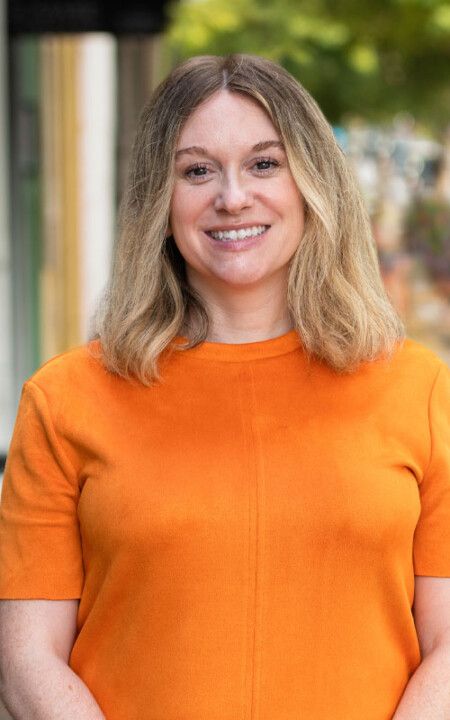
Humanitarian
NICOLE BARNETT
AGE: 38
CITY: Marietta, Georgia
EDUCATION: DMD, Medical College of Georgia; general practice residency, University of Tennessee Graduate School of Medicine
NAME OF PRACTICE: Autumn Dental
SPECIALTY: General dentistry
JOHN LENNON once famously noted that “life is what happens when you’re busy making other plans.” Dr. Nicole Barnett, who never envisioned herself owning a dental practice, can relate.
Dr. Barnett, who works in the Atlanta suburbs, first encountered special needs dentistry during her residency at the University of Tennessee Medical Center, where she treated patients in the hospital under general anesthesia. Eight years later, having relocated to the Atlanta area, she met Dr. David Kurtzman, a local dentist well known for his work with patients afflicted by dental anxiety and special needs. This pair of experiences set her on a new path.
When Dr. Kurtzman announced in 2020 that he was selling his business, Dr. Barnett felt a “pull on my heartstrings.” In January 2021, she took over the Marietta office and opened Autumn Dental. “It was one of those moments where I wasn’t looking for something, but it found me,” she says.
Although she had some experience with special needs patients, she admits it wasn’t extensive. Still, she jumped right in. “My patients,” she notes, “have been my greatest teachers.”
Today, Dr. Barnett is one of a modest number of dentists in Georgia who serve those with special needs. “Often, these patients have been searching for years for a dental home and are so appreciative to have found one,” she says. She sees patients with both physical and developmental disabilities; for more intensive work that requires sedation, patients can elect to go to the hospital for one or two visits un der general anesthesia.
Autumn Dental’s staff is entirely female, which Dr. Barnett believes helps foster a nurturing environment for patients: “Our goal is to make sure everyone feels welcome and safe.” Bringing care to this underserved population has affected her deeply, both professionally and personally. “I have a softer, more empathetic outlook on the world and with every person I encounter,” she says. “You never know what challenges someone may be dealing with.”
She hopes her unexpected career path will inspire more professionals to treat patients of all abilities: “There’s a strong need for more dentists who can treat all members of our diverse, wonderful world.”
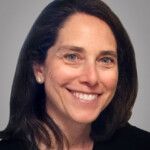
Trailblazer
REBECCA BINDER
AUGUST 8, 1965 – JULY 28, 2023
CITY: Allentown, Pennsylvania
AFFILIATION: The Benco Family Foundation
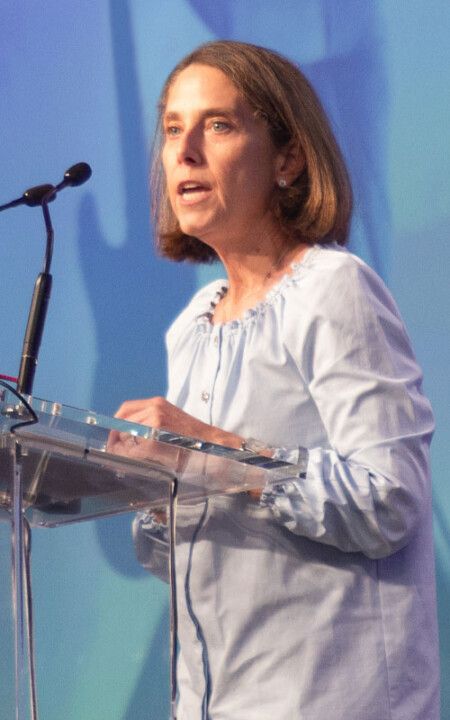 FEW PEOPLE HAVE made as big an impact on the kind of work that animates the Lucy Hobbs Project as did Rebecca Binder, who passed away in July at age 57 after a threeyear battle with breast cancer. Executive director of the Benco Family Foundation, Binder was married to Chuck Cohen—Benco Dental’s managing director and a cofounder of this magazine—for nearly three decades. Her legacy of tenacity, altruism, resilience and grace will long continue —and makes her the perfect choice for this year’s Trailblazer Award.
FEW PEOPLE HAVE made as big an impact on the kind of work that animates the Lucy Hobbs Project as did Rebecca Binder, who passed away in July at age 57 after a threeyear battle with breast cancer. Executive director of the Benco Family Foundation, Binder was married to Chuck Cohen—Benco Dental’s managing director and a cofounder of this magazine—for nearly three decades. Her legacy of tenacity, altruism, resilience and grace will long continue —and makes her the perfect choice for this year’s Trailblazer Award.
A graduate of Colby College and Columbia University Teachers College, she was a tireless advocate for improving oral health, serving with the Global Smile Foundation and helping thousands of people in poor countries with congenital facial deformities get needed surgeries, as well as postop multidisciplinary support. “Rebecca was an exceptional human being—a compassionate and focused problem solver,” says Dr. Usama Hamdan, Global Smile’s cofounder and president. “She made the lives of those she met easier.”
With the Benco Family Foundation, she was a booster of Lessons in a Lunchbox, a program of the Children’s Oral Health Institute—and its redoubtable CEO, Dr. Winifred J. Booker—that provides supplies and handson education to children in all 50 states. “Her impact has improved oral health for the communities she knew she would benefit from her kindess,” Dr. Booker says. “I am forever grateful.” In tandem with the Dental Trade Alliance Foundation, meanwhile, she helped establish the Robert Tanner Freeman Endowment, the first dental school scholarship offered through the United Negro College Fund; and the Lawrence and Sally Cohen Endowed Scholarship Fund for Dental Hygiene, targeted at underserved students interested in a career in hygiene.
Her good works will endure. The Cohen family has established the Rebecca Binder Memorial Scholarship Fund at Moravian Academy, a K12 college prep school in Bethlehem, Pennsylvania, which will also focus on disadvantaged youth. Anyone interes t ed in further donations can direct their efforts toward Cycle for Survival, an annual indoorbiking fundraiser for the treatment of rare cancers at Memorial Sloan Kettering Cancer Center in Manhattan, where Binder received treatment.
“When I think of Rebecca, I see her sparkling blue eyes and big smile,” says Sandra V. Feder, a children’s author and close friend. “She was full of energy and lived her life on her terms—helping others, serving on boards where she could make a difference and always devoted to her family.”
Dr. Hamdan concurs. “It was a privilege to have Rebecca on the board of the Global Smile Foundation and an even bigger one to have her as a friend,” he says. “What we leave behind is our goodwill and the impact on the lives of the people we touch.” —Jerilyn Forsythe



